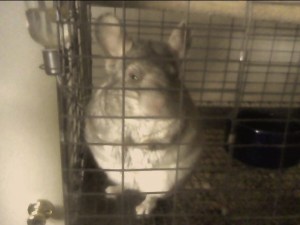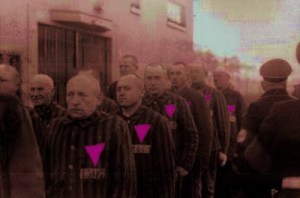I had so much fun interviewing others. It was quite a wonderful learning experience. I now realize that when an interview is interviewee-centered rather than interviewer-centered, the interviewee discusses a lot more information with the interviewer that probably would have never been mentioned. The first two interviews I conducted were in person and held back to back with a lesbian couple, Kiana and Barbara. I originally assumed they were lesbians, but during the course of the interview discovered they were bisexual. In fact, both women had previously dated men before dating women. Later in the night, I even got to ask Kiana’s younger sister, Lexie, a few questions about her experience with Kiana and Barbara.
When approaching this interview, I feel I had many assumptions about the GLBT community that I was not even aware I had, which were continually contradicted. I assumed, for instance, that the GLBT community must feel slighted by religious people and their incapacity to accept gay marriage, yet both Kiana and Barbara feel it would be wrong to get married in the traditional sense, especially in a church. They both felt this would be making a mockery of religion. Further, Kiana once believed, but no longer does believe, that to be gay is an abomination against God. Barbara still believes to be gay is an abomination against God. I also believe I was confronted by my own stereotypes of this community, for I noticed that there was no rainbow paraphernalia hanging all around their home. Also, I feel I have frequently made the assumption that homosexuals experience love differently than heterosexuals, that in some way their experience might be more physical based, yet Kiana and Barbara expressed some of the deepest love I have ever observed between two people. Kiana told me that the love shared between two women is incredibly intense, and that she has never experienced love to this degree with a man. Further, they both told me that bisexual people are just as loyal as others, that they do not desire a connection with a man and feel they are missing something when they are with a woman. This too contradicted my original assumption, an assumption I believe I acquired from a heterosexual community that taught me well to think the opposite. If my interviews were interviewer-centered, I believe I would have never recognized my faulty assumptions. Instead, my questions would have been derived from these assumptions and influenced the interview to head in a totally different direction. Overall, I realize now, from this experience and interview, that what we call normal, the home life of the heterosexual, is sometimes not even close in comparison to the normalcy expressed in the home life of the homosexual. From the moment I arrived to Kiana and Barbara’s home, until the moment I left, I felt so welcomed. There was a special sense of warmth and harmony that flowed through their walls, which I have not frequently experienced in the home’s of heterosexuals. They both were very open and accepting of the interview experience and of me in general. They were not afraid to express themselves and their real feelings. I adored being with them. I also adored meeting Kiana’s younger sister, Lexie, who told me that she does not mind that Kiana is gay, because she can still come to Kiana with boyfriend problems and Kiana understands. Kiana, Barbara, and Lexie all agreed to getting their picture taken and posted online. Here they are down below listed in this order: Barbara, Kiana, Lexie.
My third interview was with Todd, a gay man, who I also assumed was gay only. It turned out that Todd too was bisexual. His boyfriend, the man he lives with, is the only boyfriend he has ever had. Prior to this relationship, he only had girlfriends. It was interesting to see how many of the assumptions I made about the GLBT community before visiting with Kiana and Barbara were also being challenged at Todd’s home. First, his home was also very harmonious. He had dozens of pets: turtles, fish, snakes, lizards, rodents, dogs, cats, etc. I was surrounded by these beautiful creatures, some of which I took pictures of and will include my favorite, his chinchilla, in this post. Todd mentioned something to me that Kiana also mentioned, which caught me by surprise. He said that flamboyant gays are not being themselves, that they are acting the role of the cookie cutter gay that is frequently presented in stereotypical cinema. He said that he feels some gays are born naturally feminine or masculine, but the flamboyant stereotype of the gay man contradicts the truth of the gay man, which is that he comes in many different personalities. At this point in my interview with Todd, I started making connections with my interview with Kiana. Kiana also said that she disliked the stereotypical representation of lesbians being butch-like and aggressive. She too said it was a false representation. Overall, I noticed that Kiana, Barbara, Todd and his boyfriend contradicted these stereotypes completely. They were not the flamboyant gays or the butch lesbians the cinema makes them out to be. They were people with hopes, desires, and goals. Here is a picture of Todd and below him a picture of his chinchilla.
My final interview, the one conducted online with a male homosexual, did not prove to be very effective. The most beneficial part of the experience was that the time spent between sending emails back and forth caused me to reflect more and decide to begin the interview by asking him what he would like to talk about first. He gave me a lot of good ideas, things I would never even have considered without his help. But once I sent him the questions to be answered, he took a very long time to respond. When he did finally respond, he did not answer many of the questions. Further, the questions he did respond to included very short answers that lacked sufficient detail in order to be able to grasp understanding from them. For instance, when asked why he wanted to come out, he stated, “Because I was tired of hiding it.” In response to this answer, I would like to ask him, “Why were you tired of hiding it?” but I did not feel comfortable enough to pry my nose in any further. I would have felt uncomfortable attempting to approach him with more questions, because it appeared evident to me that, even though he originally expressed enthusiasm in taking the interview, he did not feel comfortable answering many of the questions. I cannot help but wonder then, if this interview was more interviewee-centered like the others, if he would have felt more compelled to answer fully and less uncomfortable about disclosing information.






